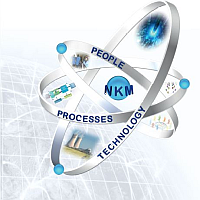Speaker
Mr
Franklin Osaisai
(NAEC)
Description
Nuclear technology development is human capital intensive. Consequently, the successful and effective deployment of nuclear technology for multifarious applications to benefit human society in a sustainable, safe and secure manner is critically hinged on the availability of a competent, robust and experienced human resource base. Many countries use nuclear and isotopic techniques to promote sustainable development objectives in energy & power, food & agriculture, human health and water resource management, as well as in the marine environment and industrial applications, amongst others. For many developing countries with limited educational training infrastructure in nuclear science and engineering, building the requisite manpower and national capacity, as well as management and retention of knowledge, to optimally reap the benefits of nuclear technology in the various sectors may be challenging. While the responsibility for growing the critical sectoral manpower in the areas of applications may rest with the mandated national institutions, the respective national atomic energy commissions (AECs) could play a catalytic role. This paper highlights the central coordinating role, that an AEC, as the national focal agency for atomic energy development, as in the case of Nigeria, could play in setting out the national agenda and strategy, and laying the foundation for the building of the critical human resource base for successful and sustainable programme implementation.
| Country or International Organization | Nigeria |
|---|
Author
Mr
Franklin Osaisai
(NAEC)

